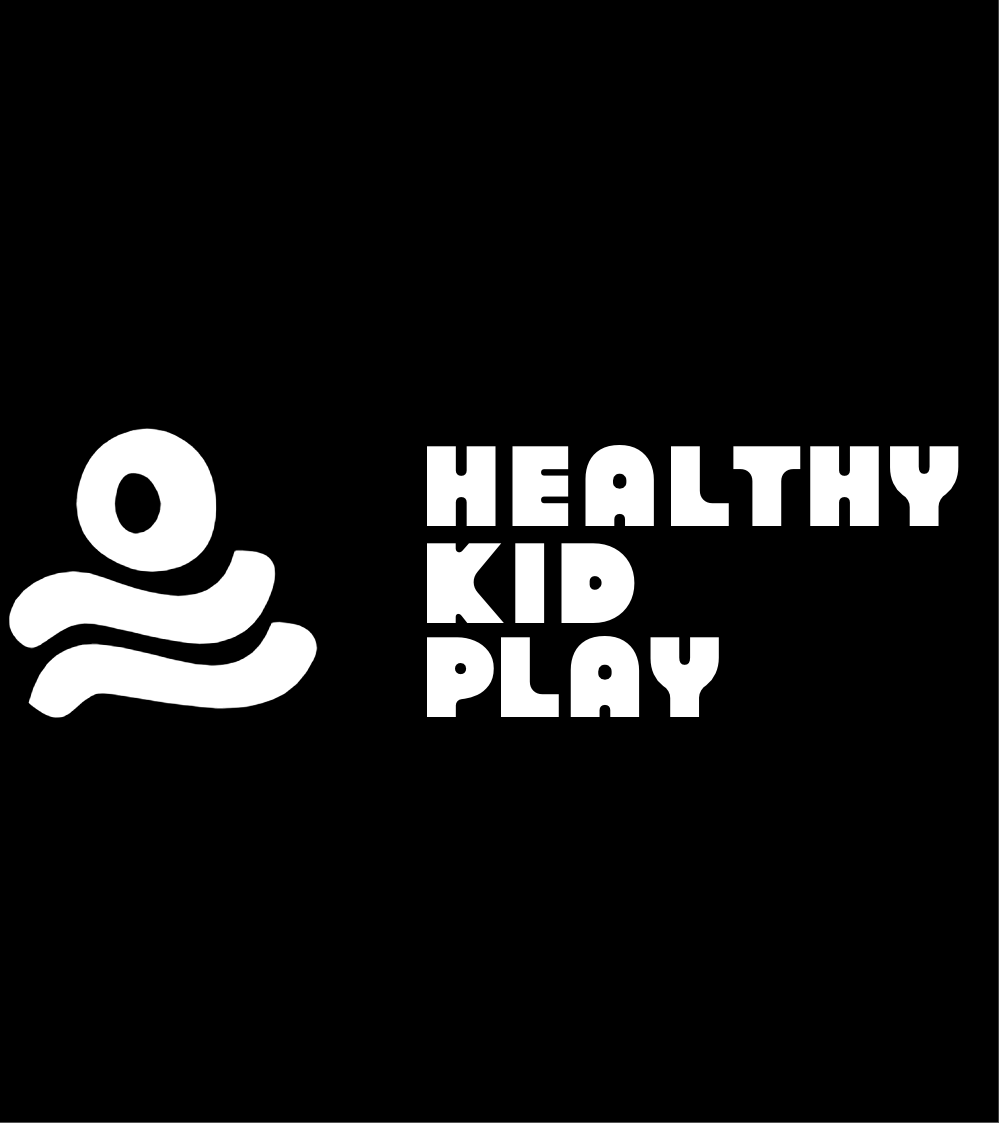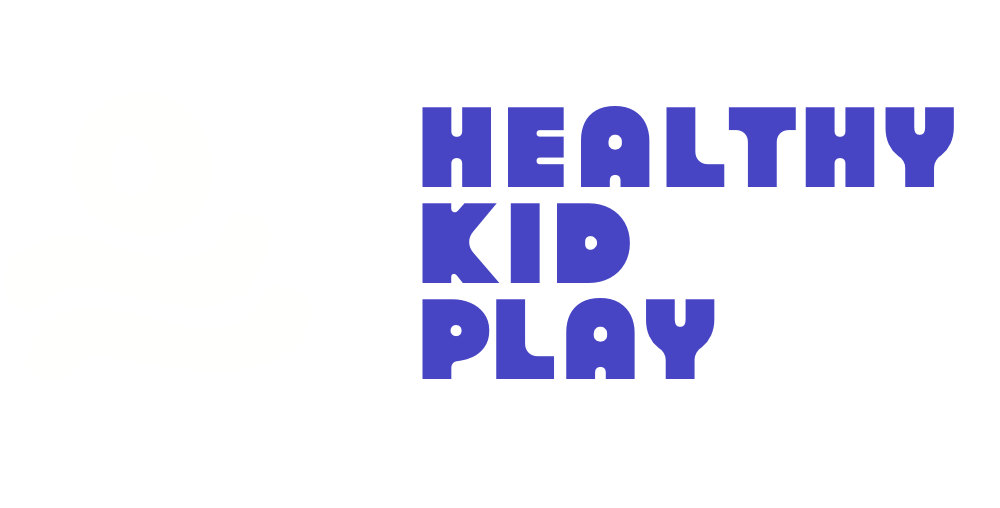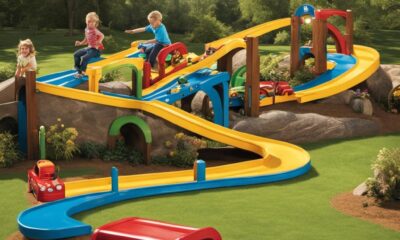Child Development
The Power of Pretend Play in Child Development

As an expert in child development, I am always amazed by the profound impact that imaginative play has on the growth of a child.
Did you know that according to research, children who engage in pretend play have been found to have higher levels of cognitive, social, and emotional development?
It’s incredible how something as simple as pretending to be a superhero or a doctor can have such profound effects on a child’s overall development.
In this article, we will explore the various benefits of pretend play and understand why it is such a crucial aspect of a child’s life.
Key Takeaways
- Pretend play enhances cognitive skills such as critical thinking, problem-solving, and decision-making.
- Pretend play supports the development of empathy and social skills through role-playing scenarios.
- Pretend play promotes language development by expanding vocabulary, enhancing syntax and grammar, and improving overall language fluency and proficiency.
- Parental involvement in facilitating pretend play benefits the child’s development by enhancing the learning experience, providing guidance and support, and strengthening the parent-child relationship.
The Cognitive Benefits of Pretend Play
I love how pretend play enhances problem-solving skills. It encourages me to explore different scenarios and come up with creative solutions.
Through pretend play, children are given the opportunity to develop their critical thinking abilities. They are challenged to think outside the box and come up with innovative ways to solve problems.
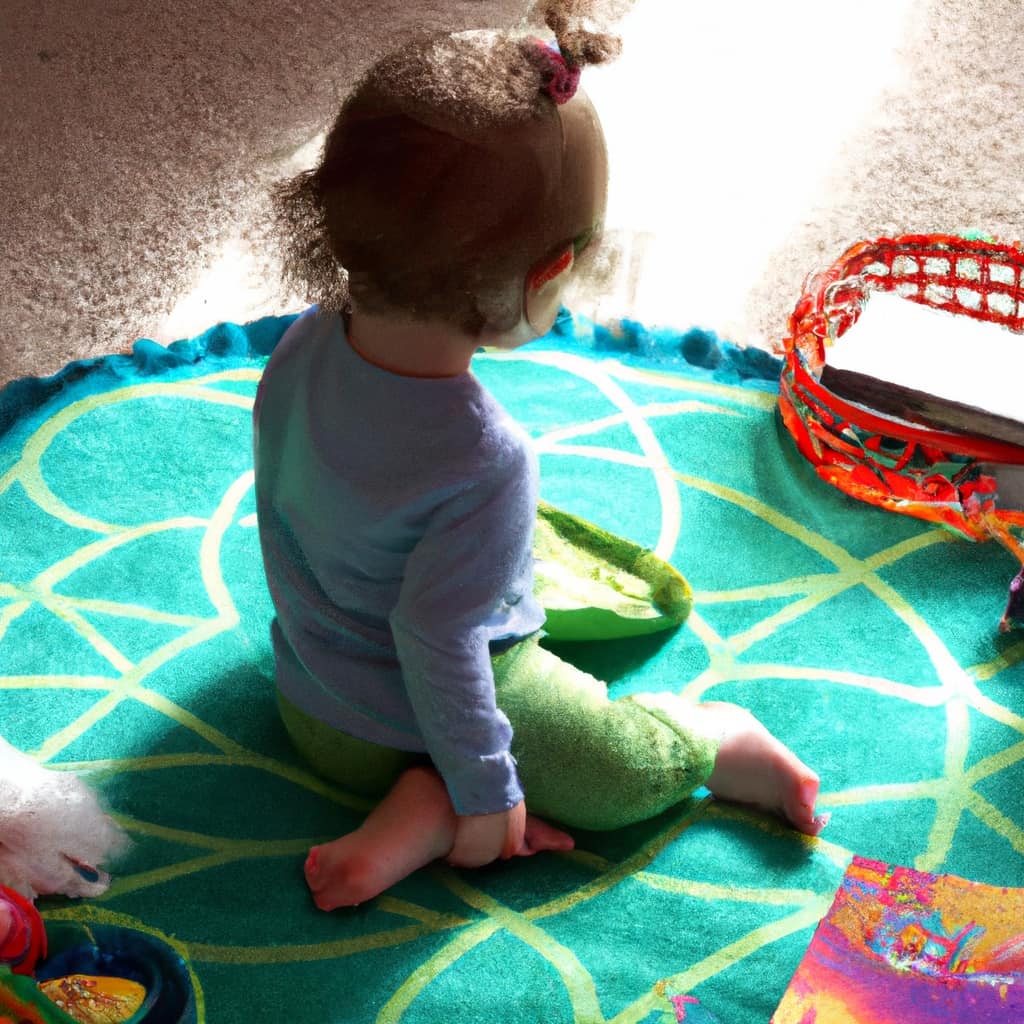
Pretend play allows children to step into different roles and situations, fostering their ability to analyze and make decisions. By engaging in imaginative play, children learn to think critically, consider multiple perspectives, and evaluate the consequences of their actions.
This type of play also helps children develop their problem-solving skills, as they navigate through various challenges and find solutions. Pretend play truly empowers children to think critically and develop their problem-solving abilities, setting a solid foundation for their cognitive development.
Enhancing Social Skills Through Pretend Play
Engaging in imaginative scenarios with others allows for the practice and development of important social skills. Building empathy skills and promoting cooperation are two key aspects of pretend play that contribute to social skill development in children.
Through role-playing, children have the opportunity to step into different roles and perspectives, fostering empathy and understanding for others. They learn to consider the feelings and needs of others, enhancing their ability to connect and relate to people in real-life situations.
Pretend play also encourages cooperation as children negotiate, take turns, and work towards a common goal. These interactions teach children how to communicate, problem-solve, and collaborate effectively with their peers.
Pretend Play and Emotional Development
Exploring different emotional responses in imaginative scenarios allows for the development of empathy and emotional intelligence. Pretend play provides a safe space for children to express and process their own emotions. By taking on different roles and perspectives, children can experiment with various emotional situations and learn how to navigate through challenging scenarios.

Through pretend play, children learn to identify and manage their own emotions effectively. This process also helps them develop empathy and compassion towards others. By experiencing different emotions in a controlled environment, children can build resilience and learn the consequences of their actions.
Pretend play not only fosters emotional development but also supports social, cognitive, and language growth. It is a powerful tool for building emotional intelligence and preparing children for real-life situations.
The Role of Pretend Play in Language Development
Learning through imaginative play has several benefits for language development. Engaging in pretend play helps expand vocabulary, improve syntax and grammar, and enhance overall language fluency and proficiency. Through pretend play, individuals can use a wide range of words and phrases that may not be encountered in everyday conversations. By pretending to be different characters and exploring different scenarios, individuals can practice using different sentence structures and improve grammar. Pretend play also provides an opportunity to express thoughts and ideas effectively, allowing for effective communication. Overall, engaging in imaginative play enhances fluency in language development and proficiency in expressing oneself through words.
Parental Involvement: Unlocking the Potential of Pretend Play
When I actively participate in pretend play with my parents, I am able to maximize the benefits of this experience for my overall growth and development. Here are some of the benefits of playtime and interactive play activities:
- Enhanced cognitive skills: Pretend play helps me develop critical thinking, problem-solving, and decision-making skills.
- Improved social skills: Through role-playing scenarios, I can develop empathy and learn how to interact with others.
- Language development: Pretend play expands my vocabulary, improves my grammar and syntax, and enhances my overall language fluency.
- Parental involvement: When my parents join in, they enhance my learning experience, provide guidance and support, and strengthen our bond.
- Strengthened parent-child relationship: Participating in pretend play with my parents deepens our connection and fosters a sense of trust and security.
Nurturing Creativity and Imagination Through Pretend Play
Engaging in imaginative play with my parents allows me to unleash my creativity and expand my imaginative abilities. Pretend play is a powerful tool for fostering innovation and encouraging problem-solving skills in children.
As I immerse myself in imaginary worlds and create stories, I am constantly challenged to think creatively and find solutions to different scenarios. Through pretend play, I learn to think outside the box and explore new possibilities. I become a problem-solver, finding innovative ways to overcome obstacles and achieve my goals.
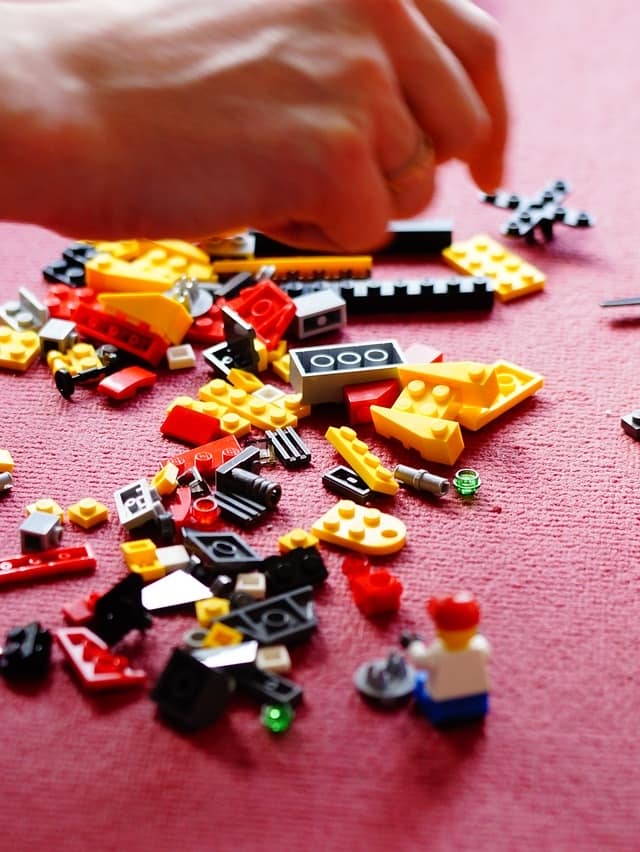
My parents’ involvement in facilitating this type of play further enhances my learning experience by providing guidance and support. Together, we create a nurturing environment that nurtures my creativity, imagination, and problem-solving skills, setting the foundation for future innovation.
The Holistic Impact of Pretend Play on Child Development
Experiencing pretend play with my parents has a profound impact on my overall growth. It enhances my cognitive, social, and emotional abilities.
-
Pretend play enhances problem-solving skills by encouraging me to explore different scenarios and come up with creative solutions.
-
Pretend play allows me to express myself freely, fostering self-expression and boosting my confidence.
-
Through role-playing, I learn to navigate through challenging situations, developing resilience and emotional intelligence.
-
Pretend play promotes abstract thinking and decision-making skills. I constantly make choices and solve problems within the imaginary world.

-
Pretend play provides a safe space for me to experiment with different emotions. I learn to manage them effectively and understand their impact on myself and others.
Overall, pretend play not only enhances my problem-solving skills but also plays a significant role in fostering self-expression and emotional development.
Frequently Asked Questions
How Can Parents Encourage Pretend Play at Home?
I encourage pretend play at home by providing a variety of props and costumes, joining in on the fun, and praising my child’s creativity. This helps enhance their social skills and allows them to explore their imagination.
Can Pretend Play Help Children Develop Problem-Solving Skills?
Yes, pretend play can help children develop problem-solving skills. Through role-playing and decision-making, children use their creativity and imagination to solve problems in a fun and engaging way.
What Are Some Examples of Pretend Play Scenarios That Promote Empathy?
In pretend play scenarios, children can practice empathy by taking on different roles and perspectives. They learn to understand and relate to others’ emotions, fostering social development and building skills for compassionate interactions.
How Does Pretend Play Contribute to Language Development in Children?
Pretend play contributes to language development in children by stimulating creative imagination and promoting cognitive growth. Through role-playing and storytelling, children expand their vocabulary, improve syntax and grammar, and enhance overall language fluency and proficiency.

Are There Any Specific Tips for Parents to Effectively Engage in Pretend Play With Their Children?
There are numerous benefits of imaginative play in child development. To effectively engage in pretend play with children, parents can use pretend play strategies such as joining in, providing props, and encouraging creativity.
Conclusion
In conclusion, the power of pretend play in child development is truly remarkable. Who would have thought that something as simple as pretending could have such a profound impact on a child’s cognitive, social, and emotional growth?
It’s almost ironic how something so fun and imaginative can also be incredibly beneficial for a child’s development. Through pretend play, children are able to explore, learn, and grow in ways that traditional learning methods cannot always achieve.
So, let’s embrace the magic of pretend play and watch our children thrive in their own little worlds of creativity and imagination.
Child Development
The Power of Onlooker Play: Boosting Social, Cognitive, and Emotional Development

As a researcher in the field of child development, I am fascinated by the concept of onlooker play and its importance in promoting social, cognitive, and emotional development in children.
Did you know that approximately 40% of children engage in onlooker play at some point during their early years?
This seemingly passive form of play actually plays a crucial role in shaping a child’s understanding of social norms, effective communication, and conflict resolution.
In this article, we will explore the various benefits of onlooker play and how it can positively impact a child’s overall development.
Key Takeaways
- Onlooker play is important for social development as it allows children to learn social interactions, problem-solving, and social norms through observation and imitation.
- Onlooker play promotes cognitive development by enhancing problem-solving skills, critical thinking, attention, memory, and language development.
- Emotions play a crucial role in onlooker play, impacting a child’s behavior and choices. Learning to manage emotions is vital for healthy social development.
- Onlooker play supports language development by expanding vocabulary, enhancing language comprehension, promoting social language skills, and fostering storytelling and narrative skills. Adults can facilitate onlooker play to maximize its benefits for children through language modeling and prompts.
Definition and Importance of Onlooker Play
Onlooker play is when I observe others play without participating, and it helps me learn social interactions and problem-solving. Through passive observation, I gain a deeper understanding of how to interact with others and navigate social situations. By watching my peers play, I can learn important social skills such as effective communication, conflict resolution, and cooperation.
Onlooker play also helps in building social awareness through observation. It allows me to understand social norms and different social roles, promoting empathy and perspective-taking abilities. This type of play provides a safe and low-pressure environment for shy children to learn and grow.

Onlooker play is beneficial for cognitive development as well. It enhances problem-solving skills and critical thinking through observational learning.
Overall, onlooker play plays a crucial role in shaping my social, cognitive, and emotional development.
Impact of Onlooker Play on Social Skills
During onlooker play, I observe and analyze my peers’ interactions and problem-solving skills, which helps me learn effective communication and cooperation. The impact of peer observation in onlooker play is significant for developing social skills.
By observing how my peers interact, I gain insights into effective communication, conflict resolution, and cooperation. Onlooker play also provides a safe and low-pressure environment for shy children to learn and practice social skills. By watching others, shy children can gradually build their confidence and become more comfortable engaging with their peers.
This peer observation not only benefits shy children but also fosters positive peer relationships among all children. It promotes empathy, perspective-taking, and understanding of group norms, leading to improved social interactions and deeper connections.
Overall, onlooker play has a positive impact on social development and benefits children of all personality types.
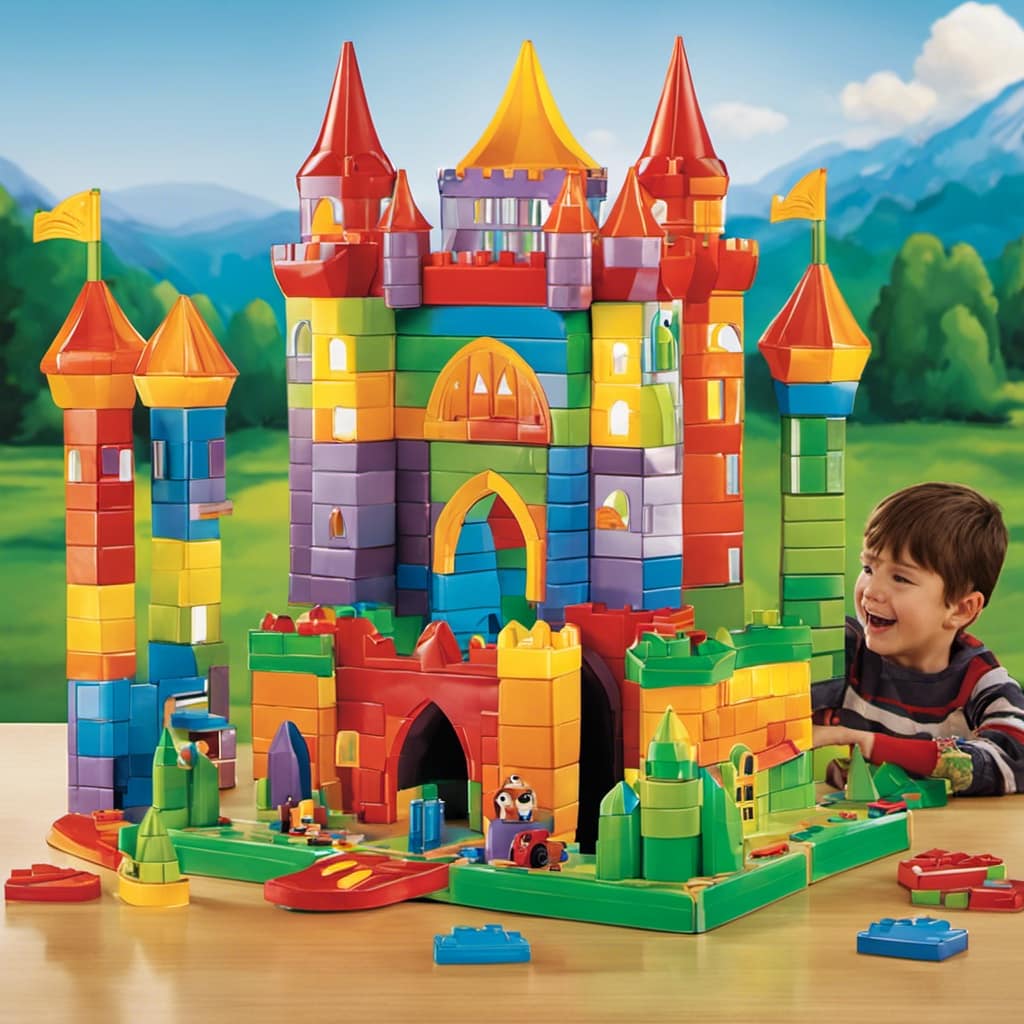
Cognitive Benefits of Onlooker Play
While observing others play, I actively engage in critical thinking and expand my cognitive abilities through active observation and analysis. Onlooker play offers numerous cognitive benefits, including observational learning and critical thinking.
Here are four ways in which onlooker play enhances cognitive development:
-
Observational Learning: By watching and imitating others, children acquire new knowledge and skills, improving their problem-solving abilities.
-
Critical Thinking: Onlooker play stimulates cognitive abilities such as attention and memory as children process and make sense of their observations.
-
Language Comprehension: Through conversations and questions during onlooker play, children develop language skills and expand their vocabulary.
-
Social Language Skills: Onlooker play encourages the development of social language skills, such as turn-taking and expressing thoughts and feelings.
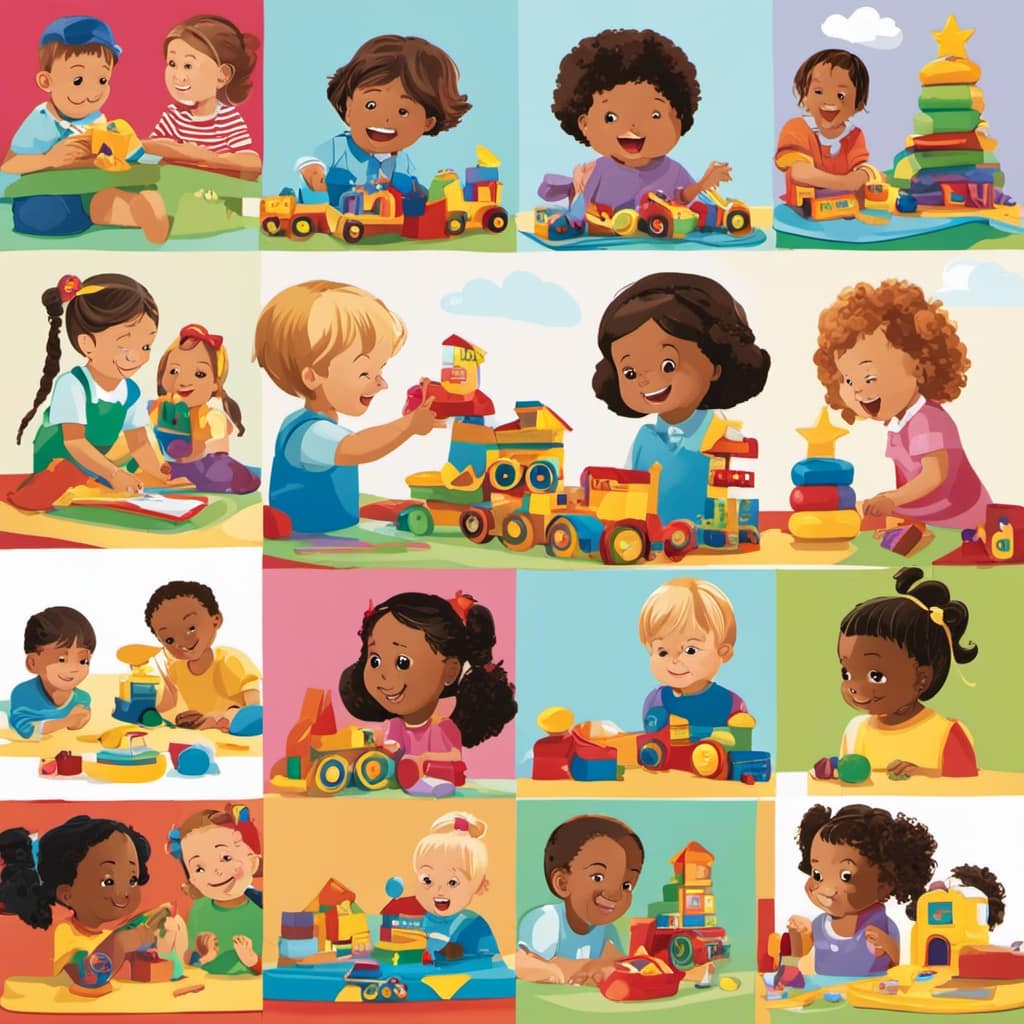
Emotional Development and Onlooker Play
Experiencing a range of emotions during onlooker play significantly influences my behavior and overall growth. It is during this type of play that I learn to manage my emotions and adapt to social situations. Understanding the impact of emotions on my behavior and self-regulation is crucial for my development. Emotions shape how I interact with my peers and form relationships during onlooker play. Positive emotions lead to more positive social interactions and deeper connections, while negative emotions can hinder socialization and impact my self-esteem. To navigate peer relationships effectively, I need to regulate my emotions. Onlooker play also enhances my social language skills. It encourages me to practice turn-taking, express my thoughts and feelings, and expand my vocabulary. By observing others, I learn how language is used in different contexts. Overall, onlooker play plays a vital role in my emotional and social development.
| Managing Emotions | Social Language Skills |
|---|---|
| – Regulating emotions is important for navigating peer relationships during onlooker play. | – Onlooker play supports vocabulary expansion through exposure to different words and phrases. |
| – Understanding the impact of emotions on behavior and self-regulation during onlooker play is crucial for a child’s overall development. | – It enhances language comprehension by observing how language is used in different contexts. |
| – Emotions shape how children interact and form relationships with peers during onlooker play. | – Onlooker play encourages social language skills such as turn-taking and expressing thoughts and feelings. |
Language Development and Onlooker Play
Observing others during onlooker play helps me expand my language skills by exposing me to different words and phrases. It is fascinating to see how language is used in different contexts and to learn new vocabulary through observation. Here are four ways onlooker play contributes to language development:
-
Language Acquisition: Onlooker play provides opportunities to hear and learn new words and phrases, expanding a child’s vocabulary.
-
Social Language Skills: By observing others engage in conversations and interactions, children learn important social language skills like turn-taking and expressing thoughts and feelings.
-
Storytelling and Narrative Skills: Onlooker play encourages children to engage in role-playing and creating narratives, promoting storytelling and narrative skills.
-
Facilitated Language Learning: Adults can enhance onlooker play by asking open-ended questions, providing prompts, and modeling language skills, maximizing its benefits for children.

Observational Learning and Problem-Solving in Onlooker Play
When I watch others play, I learn from their actions and problem-solving strategies. Observational learning techniques allow me to observe and analyze how others approach and solve problems. By observing their strategies, I can gain new insights and develop my own problem-solving skills.
Onlooker play provides a unique opportunity to witness different problem-solving approaches and techniques. It allows me to see the consequences of different actions and learn from the outcomes. Whether it’s observing how someone tackles a puzzle or navigates a social conflict, I can apply these problem-solving strategies to my own life situations.
Through onlooker play, I can expand my knowledge and repertoire of problem-solving techniques, enhancing my ability to tackle challenges effectively.
Enhancing Social Interaction Skills Through Onlooker Play
While watching others play, I can enhance my social interaction skills by actively engaging and learning from their interactions. Peer observation allows me to observe and understand how others interact, communicate, and solve problems. Through social learning, I can acquire new social skills and gain a deeper understanding of social norms and expectations.
The power of onlooker play lies in its ability to foster empathy and perspective-taking abilities, promoting positive peer relationships. It also provides a safe environment for shy children to learn and practice social skills. By regulating my emotions during onlooker play, I can navigate peer relationships more effectively and develop healthy social connections.
Onlooker play not only promotes social development but also contributes to cognitive growth by stimulating critical thinking, attention, and memory. This form of play is a valuable tool for enhancing social interaction skills and overall development.

Promoting Empathy and Perspective-Taking in Onlooker Play
By actively engaging and learning from others’ interactions during onlooker play, I can cultivate empathy and develop a greater capacity for perspective-taking. Onlooker play provides a unique opportunity for me to observe and understand the emotions, thoughts, and actions of my peers. Through this observation, I can foster compassion and promote understanding.
By witnessing different perspectives and experiences, I can expand my own understanding of the world and the people around me. Onlooker play allows me to see how emotions shape social interactions and relationships, and it teaches me how to regulate my own emotions in social situations.
Furthermore, by actively participating in onlooker play, I can develop important social skills such as effective communication, conflict resolution, and cooperation.
Overall, onlooker play is a powerful tool for promoting empathy and perspective-taking, which are essential for creating a more compassionate and understanding society.
The Role of Emotions in Onlooker Play
Feeling a range of emotions during onlooker play impacts how I interact with and learn from my peers. Emotions play a crucial role in shaping my behavior and development during onlooker play. Here is how the role of emotions in onlooker play impacts my social and emotional development:
-
Excitement: When I feel excited while observing my peers play, it motivates me to join in and engage with them. This excitement fuels my curiosity and desire to learn from their interactions.

-
Frustration: If I experience frustration while watching others play, it can hinder my socialization and impact my self-esteem. It may make me hesitant to participate or lead to negative self-talk, affecting my confidence in interacting with peers.
-
Empathy: Onlooker play provides me with opportunities to observe my peers experiencing different emotions. This helps me develop empathy and understand how their feelings influence their behavior.
-
Self-Reflection: Emotions experienced during onlooker play prompt me to reflect on my own feelings and actions. This self-reflection allows me to regulate my emotions, adapt to social situations, and foster healthy social development.
Understanding the impact of emotions in onlooker play is crucial for my overall development, including the development of social skills and self-esteem.
Maximizing the Benefits of Onlooker Play Through Adult Facilitation
In the previous subtopic, we explored the role of emotions in onlooker play and how they shape a child’s behavior and development. Now, let’s delve into maximizing the benefits of onlooker play through adult facilitation.
Adult guidance plays a crucial role in fostering independence and creating an enriching onlooker play environment. By providing support and encouragement, adults can help children navigate social interactions and develop important skills.
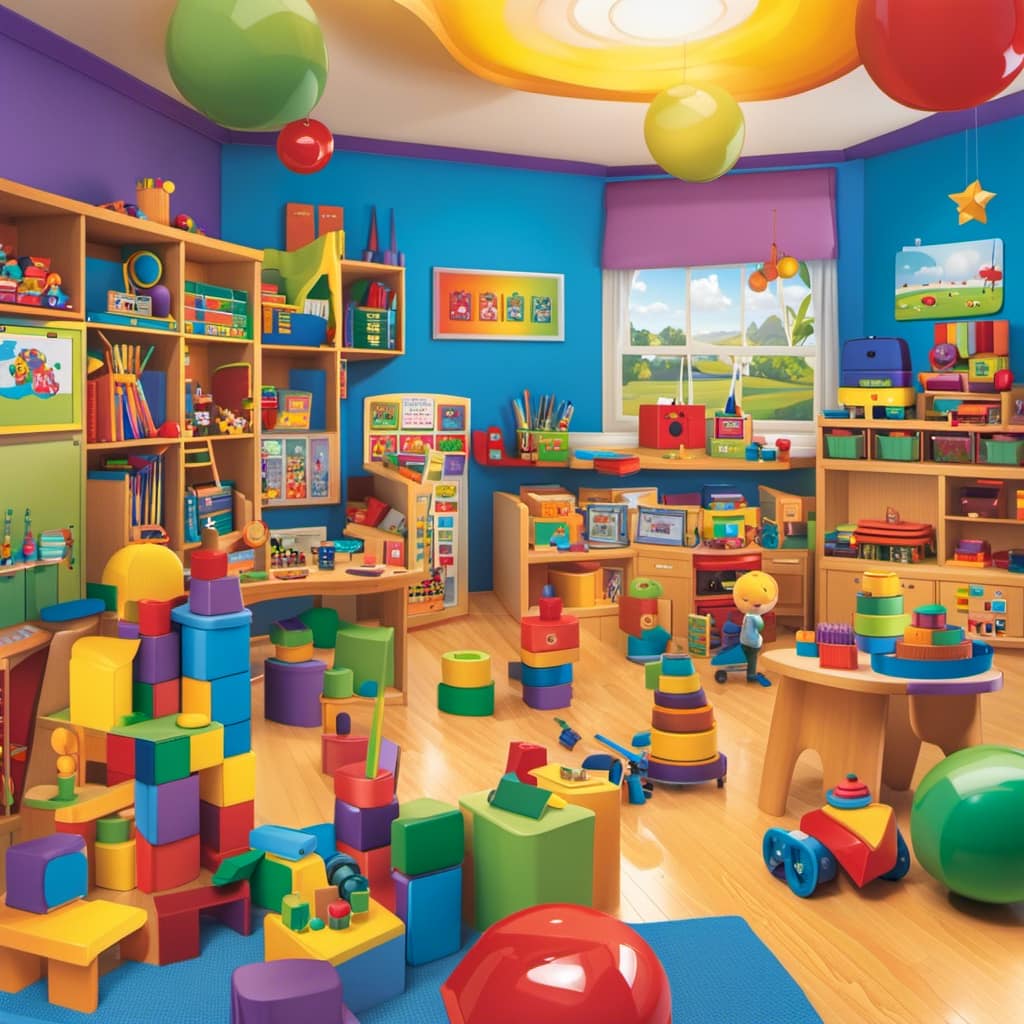
To understand how adult facilitation can enhance onlooker play, let’s take a look at the table below:
| Adult Facilitation Techniques | Benefits |
|---|---|
| Asking open-ended questions | Encourages critical thinking and communication skills |
| Prompting role-playing scenarios | Stimulates imagination and creativity |
| Modeling language skills | Enhances vocabulary and language development |
| Providing feedback and reinforcement | Boosts self-confidence and motivation |
Frequently Asked Questions
How Does Onlooker Play Contribute to the Development of Social Skills in Children?
Onlooker play helps children develop social skills by providing opportunities to observe and understand social interactions. Through observation, children learn empathy and gain a deeper understanding of others, fostering positive relationships and enhancing their overall social development.
What Role Do Emotions Play in Shaping a Child’s Behavior During Onlooker Play?
During onlooker play, emotions like empathy influence a child’s behavior. Positive emotions foster deeper connections, while negative emotions can hinder socialization and impact self-esteem. Understanding emotions is crucial for healthy engagement in onlooker play.
How Does Onlooker Play Stimulate Cognitive Abilities and Enhance Problem-Solving Skills?
Observing others in onlooker play stimulates my cognitive abilities and enhances problem-solving skills. By actively observing and analyzing, I learn new strategies and expand my thinking, leading to cognitive growth.
How Can Adults Maximize the Benefits of Onlooker Play Through Facilitation and Modeling Language Skills?
Adult involvement in onlooker play can maximize its benefits by modeling language skills. By asking open-ended questions, prompting conversations, and demonstrating effective communication, adults support children’s language development and enhance their social, cognitive, and emotional development.
What Are Some Strategies for Helping Children Regulate Their Emotions During Onlooker Play?
During onlooker play, I can help children understand emotions by teaching them emotion regulation strategies. By modeling self-control and providing guidance, we can create a safe space for them to navigate their feelings while observing others.

Conclusion
In conclusion, onlooker play is a valuable tool for promoting social, cognitive, and emotional development in children. By observing others without actively participating, children can learn social norms, effective communication, and problem-solving skills. Onlooker play also enhances social awareness, language development, and understanding of group dynamics.
Additionally, it fosters empathy and perspective-taking. Emotions play a crucial role in onlooker play, and understanding their impact is essential for a child’s overall development.
As the saying goes, ‘The best way to learn is by watching.’ So let’s encourage onlooker play and maximize its benefits through adult facilitation.
Child Development
The Power of Music in Child Development: Cognitive, Emotional, Social, and Physical Benefits

As a lover of music, I have always believed in the profound impact that music can have on our lives.
But did you know that music can have a profound impact on a child’s development? It’s not just about enjoying a catchy tune; it goes much deeper than that.
In fact, research has shown that music can enhance cognitive skills, stimulate emotional expression, improve social interactions, and even enhance physical coordination.
So, let’s dive into the fascinating world of music and explore the cognitive, emotional, social, and physical benefits it offers to children.
Key Takeaways
- Music boosts cognitive development, improving problem-solving skills, spatial intelligence, critical thinking, and memory retention.
- Exposure to music from an early age positively impacts emotional development and helps children identify and express their emotions effectively.
- Engaging with music enhances children’s communication skills, non-verbal communication, empathy, and emotional intelligence.
- Music enhances fine motor skills through rhythmic patterns, instrument manipulation, and improves hand-eye coordination.
The Cognitive Advantages of Music in Child Development
Engaging with music enhances my cognitive development. It improves problem-solving skills, critical thinking, and memory retention. Numerous studies have shown the benefits of music on problem-solving skills, critical thinking, and memory retention in child development. When children engage with music, they are required to actively participate, stimulating their brains and enhancing cognitive abilities.
The process of analyzing and understanding musical patterns and structures promotes critical and analytical thinking. This skill can transfer to other areas of life. Additionally, music enhances spatial intelligence, an important skill for tasks such as reading maps and solving puzzles. Children who engage with music have been found to have enhanced spatial reasoning skills.

Furthermore, exposure to music and active participation in musical activities positively impact language skills, particularly in reading and vocabulary acquisition. Music has a profound influence on cognitive development. It is a valuable tool for enhancing problem-solving skills, critical thinking, and memory retention in children.
Emotional Growth Through Music in Child Development
Listening to different types of music has helped me identify and express my emotions effectively. Music has a profound impact on emotional expression and self-regulation in child development.
Engaging with music provides a safe outlet for children to express their feelings and navigate through their emotions. Certain types of music have a calming effect on children, reducing stress and anxiety. Through music, children can explore a range of emotions and learn how to regulate their emotional responses.
Research has shown that exposure to music from an early age positively influences emotional development, helping children develop the skills necessary to understand and manage their emotions. Music acts as a powerful tool for emotional growth, providing children with the means to express themselves and develop self-regulation skills.
Music’s Impact on Social Skills in Child Development
Participating in group music activities has helped me develop stronger communication skills and improved my ability to cooperate with others. Music provides a platform for non-verbal expression, improving non-verbal communication. Engaging in group music activities promotes turn-taking and cooperation, fostering teamwork abilities. Through music, I have learned the importance of listening to others and working together towards a common goal. The collaborative nature of music-making requires effective communication and active participation from everyone involved. The table below highlights the key ways in which music enhances communication skills and fosters teamwork abilities:
| Enhancing Communication Skills | Fostering Teamwork Abilities |
|---|---|
| Improves verbal and non-verbal communication | Promotes collaboration and cooperation |
| Encourages active listening | Enhances problem-solving skills |
| Develops empathy and emotional intelligence | Builds trust and mutual respect |
Engaging in music activities has been instrumental in my personal growth, allowing me to develop essential social skills that are valuable in various aspects of life.
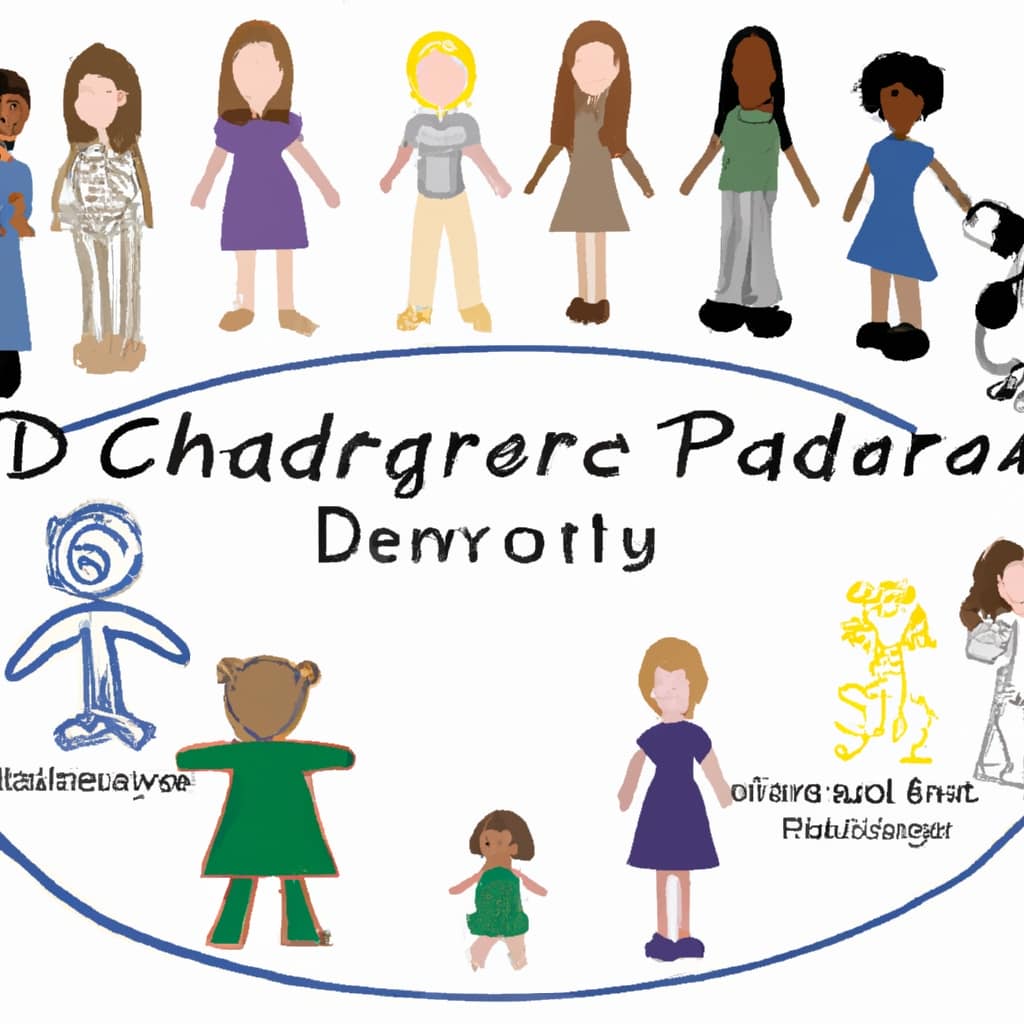
Enhancing Fine Motor Skills Through Music in Child Development
Playing musical instruments has improved my coordination and dexterity, enhancing my fine motor skills. It’s fascinating to see how instrument manipulation requires precise movements and finger coordination.
Here are four ways that music enhances fine motor development:
-
Hand-eye coordination: Playing instruments like the piano or guitar involves synchronizing hand movements with visual cues, improving coordination between the hands and eyes.
-
Finger dexterity: The intricate finger movements required to play instruments strengthen fine motor skills, enabling more precise control and nimble finger movements.
-
Instrument manipulation: Holding and playing instruments requires grasping, finger isolation, and precise control, which enhance overall fine motor development.
-
Transferable skills: The fine motor skills developed through music can transfer to other activities, such as writing, drawing, or engaging in sports.
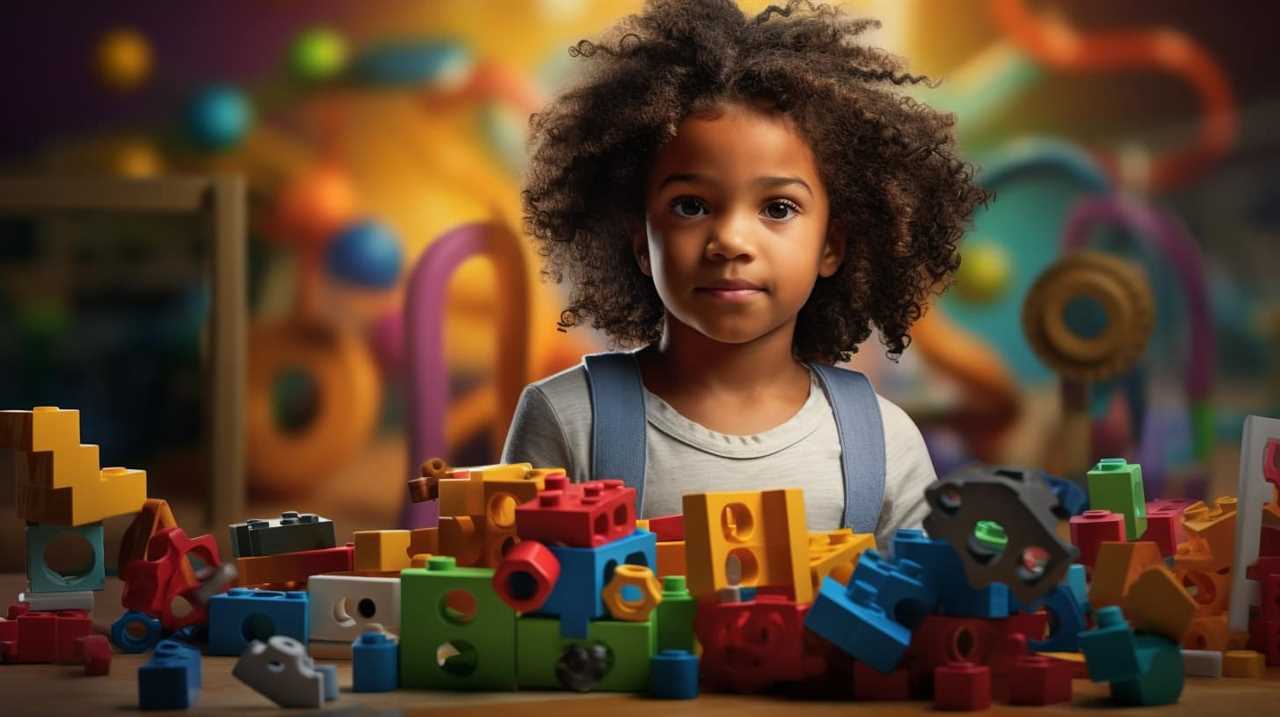
Music’s Influence on Academic Performance in Child Development
Attending music classes and actively engaging with the curriculum have significantly improved my academic performance. The impact of music on academic motivation is undeniable. When I immerse myself in music, I feel a surge of energy and enthusiasm for learning.
The correlation between music and memory retention is remarkable. As I listen to melodies and rhythm, my brain becomes more alert and focused, enhancing my ability to retain information. The repetition and patterns in music reinforce my memory, making it easier to recall facts and concepts.
Music has become a powerful tool in my academic journey, boosting my motivation and sharpening my memory. It has truly transformed my approach to learning and has had a profound impact on my overall academic performance.
The Role of Music in Cultural Sensitivity and Diversity Awareness
As we explore the power of music in child development, we now turn our attention to the role of music in fostering empathy and promoting cross-cultural understanding.
Music’s role in fostering empathy:
- Engaging with music allows children to connect with and understand the emotions of others.
- Through music, children can experience different perspectives and develop a sense of compassion.
- Music encourages empathy by providing a platform for emotional expression and connection.
- Active participation in music activities, such as singing or playing instruments, promotes empathy development.
The impact of music on cross-cultural understanding:

- Exposure to different musical styles and traditions broadens children’s understanding of diverse cultures.
- Music challenges stereotypes and promotes appreciation for different perspectives.
- Listening to music in different languages sparks curiosity and enhances language acquisition.
- Music showcases the rich tapestry of human expression and cultural diversity.
Music’s Positive Effects on Emotional Well-being in Child Development
Listening to music has a profound impact on my emotional well-being, enhancing my mood, reducing stress, and bringing me joy.
Music therapy for emotional regulation is a powerful tool that harnesses the therapeutic benefits of music to promote emotional well-being and self-expression. Numerous studies have shown that music has the ability to evoke and enhance emotional expression in individuals, helping them identify and express their emotions effectively.
Music provides a safe outlet for self-expression, allowing individuals to explore and convey their feelings in a non-threatening way. Additionally, music plays a crucial role in self-expression and identity development. Through music, individuals can connect with their emotions, experiences, and personal narratives, fostering a sense of self and promoting a deeper understanding of one’s identity.
Whether through listening, singing, or playing an instrument, music has the ability to touch our souls and uplift our spirits, making it a powerful tool for emotional well-being and personal growth.
The Physical Benefits of Music in Child Development
Playing musical instruments has improved my coordination, dexterity, and hand-eye coordination. Music therapy has been shown to have numerous physical benefits for child development. Here are four ways in which music enhances physical coordination:
-
Motor Skills: Engaging with music through playing instruments requires precise movements and coordination. This helps develop fine motor skills and improves overall dexterity.

-
Balance: Many musical activities, such as dancing or marching to the beat, require maintaining balance and coordination. Regular participation in music-related movements can improve balance over time.
-
Hand-Eye Coordination: Playing instruments like the piano or guitar requires synchronizing hand movements with visual cues. This enhances hand-eye coordination and improves the ability to perform complex tasks.
-
Gross Motor Skills: Music therapy often involves activities that require large muscle movements, such as dancing or playing drums. These activities can improve gross motor skills and overall physical coordination.
Music Education as a Pathway to Personal Growth and Success
Engaging with music education has opened doors to personal growth and paved the way for my success. The power of music in child development is evident not only in its cognitive, emotional, and social benefits but also in its therapeutic effects.
Music has been used as a form of therapy for individuals with various conditions, such as autism and ADHD, to improve their communication and attention skills. Moreover, research has shown that music has a profound impact on brain development. It stimulates areas of the brain responsible for language processing, memory, and emotional regulation.
By engaging in music education, I have not only honed my musical abilities but also strengthened my cognitive skills, improved my emotional well-being, and developed a deeper understanding of myself and others.
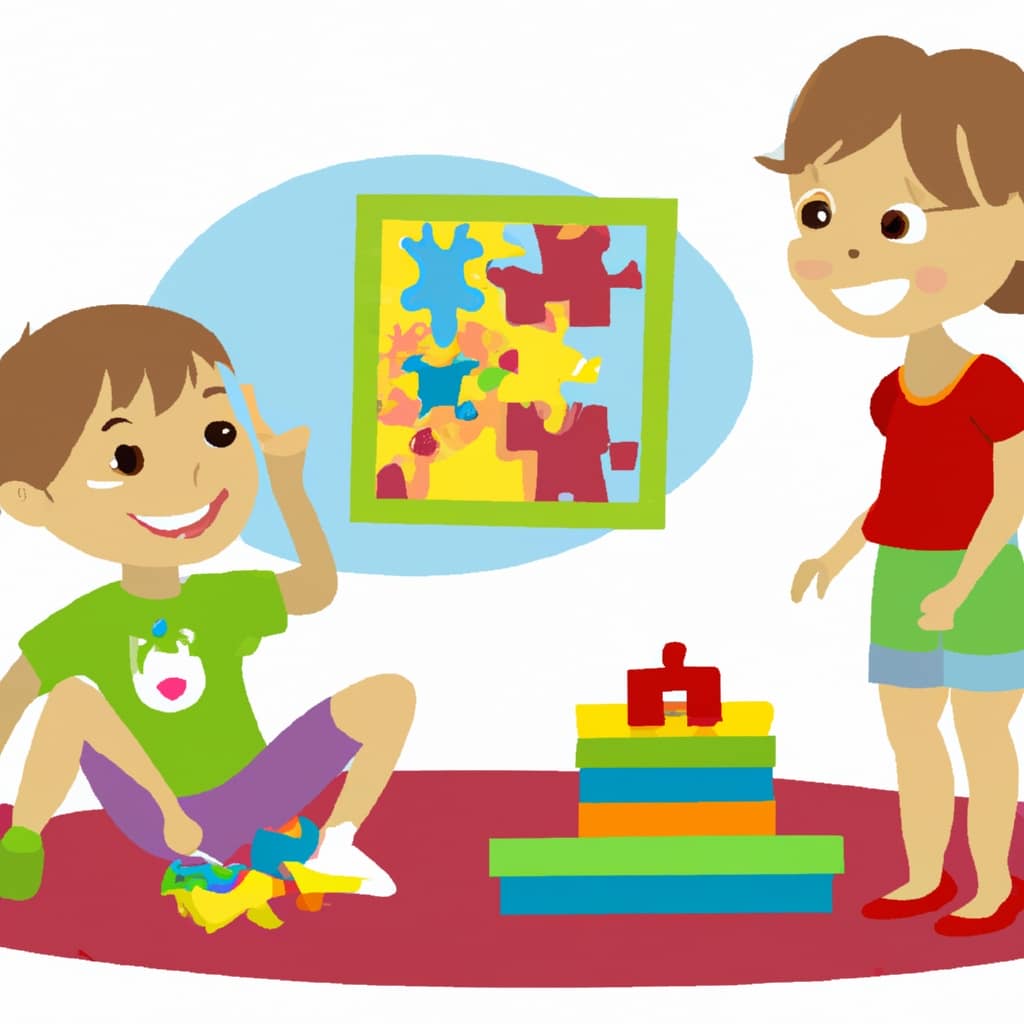
Music truly has the power to shape and transform lives.
Frequently Asked Questions
What Are Some Specific Ways That Music Can Enhance Problem-Solving Skills in Children?
Music enhances problem-solving skills in children by promoting critical thinking and analytical abilities. Engaging with music requires active participation and cognitive processing, allowing children to develop effective problem-solving techniques.
How Does Exposure to Music From an Early Age Impact a Child’s Emotional Development?
Exposure to music from an early age greatly impacts a child’s emotional development. It influences behavior and plays a crucial role in self-expression. Music has the power to evoke and enhance emotional expression in children.
Can Participating in Group Music Activities Help Improve a Child’s Communication Skills? How?
Participating in group music activities can improve a child’s communication skills by promoting social interactions and boosting self-confidence. Through collaboration and shared experiences, children learn to express themselves effectively and develop stronger interpersonal connections.
What Are Some Examples of Fine Motor Skills That Can Be Developed Through Engaging With Music?
Engaging with music develops fine motor skills, such as finger movements and instrument manipulation. It enhances hand-eye coordination and improves physical coordination, motor skills, and balance. Music provides a platform for physical self-expression and creative control.
How Does Music Positively Influence Academic Motivation in Children?
Music positively influences academic motivation in children by improving cognitive development and enhancing overall academic performance. Engaging with music enhances critical thinking, memory retention, and reasoning skills, creating a positive learning environment that promotes emotional regulation and creativity.

Conclusion
In conclusion, the power of music in child development cannot be overstated. It is a catalyst for cognitive growth, emotional well-being, social connections, and physical coordination.
From enhancing problem-solving skills to promoting empathy and teamwork abilities, music has a profound impact on various aspects of a child’s development. As a knowledgeable and authoritative voice, I can confidently affirm that the evidence supports the numerous benefits of music in shaping young minds.
So let us embrace the harmonious journey of music and watch our children thrive.
Child Development
The Power of Music: Fostering Growth and Well-being in Children

As a passionate music lover and strong supporter, I strongly believe that music has an incredible ability to foster and greatly enhance children’s development and well-being in special ways.
It’s not just about singing a few songs or playing an instrument; music education goes far beyond that. It ignites a fire within young minds, enhancing their academic performance, cognitive skills, emotional development, and social interactions.
Through the magic of music, children can unlock their full potential and embark on a journey of self-discovery and creativity.
Key Takeaways
- Music education improves academic performance and cognitive skills.
- Music helps children understand and connect with the emotions of others.
- Musical group interactions promote teamwork, cooperation, and collaboration.
- Music enhances fine motor skills, hand-eye coordination, and concentration.
The Impact of Music Education on Academic Performance
Music education has a significant impact on my academic performance, improving my cognitive skills and helping me excel in my studies. The role of music in fostering creativity and imagination cannot be overstated. Through music education, I have learned to think critically, analyze patterns, and solve problems.
The process of learning an instrument or participating in a choir has taught me discipline, perseverance, and the importance of practice. Music has also enhanced my memory retention and attention span, enabling me to absorb information more effectively. Moreover, music has sparked my creativity, allowing me to think outside the box and approach tasks with a unique perspective.
Overall, music education has not only enriched my academic journey but has also nurtured my love for learning and fueled my passion for exploration.

Enhancing Cognitive Skills and Memory Through Music
Engaging with melodies and rhythms strengthens my cognitive skills and boosts my memory retention. Music has the power to enhance our problem-solving abilities and memory formation.
When I listen to music or play an instrument, my brain actively engages in processing the melodies and rhythms, stimulating critical thinking and cognitive development. It’s as if my mind becomes a puzzle solver, deciphering the musical patterns and harmonies.
Additionally, music has a profound impact on memory formation and retrieval. The catchy tunes and lyrics help me remember information more effectively. It’s like the music acts as a mnemonic device, aiding in the storage and retrieval of memories.
Music and Emotional Development in Children
When I listen to melodies and lyrics, I can connect with and understand the emotions of others. Music has a profound impact on emotional development in children, fostering empathy and emotional intelligence. Through music therapy, children can benefit from improved emotional well-being and coping mechanisms. Music provides a safe outlet for children to explore and express their own emotions, allowing them to develop a deeper understanding of themselves and others. The effects of music on emotional intelligence are significant, as it helps children recognize and regulate their emotions more effectively. In a world where emotions can be overwhelming, music acts as a therapeutic tool, offering comfort and solace. By incorporating music into a child’s life, we can nurture their emotional growth and well-being, helping them navigate the complexities of their emotions with greater resilience and understanding.
| Effects of Music on Emotional Intelligence | Music Therapy for Emotional Well-being |
|---|---|
| – Enhances emotional understanding | – Provides a safe outlet for expression |
| – Fosters empathy and compassion | – Improves emotional regulation |
| – Develops self-awareness | – Reduces stress and anxiety |
| – Enhances emotional expression | – Promotes emotional healing |
Music as a Tool for Social Skills Development
As I participate in musical group interactions, I can cultivate teamwork, cooperation, and collaboration skills. Music has the power to bring people together, creating a space where social interaction flourishes. Through shared musical experiences, we learn to listen, communicate, and work harmoniously towards a common goal.
✨Imagine the scene: a group of musicians, each playing their instrument with passion and precision. The rhythm section lays down a solid foundation, while the melody instruments weave intricate melodies that dance in the air. The collaboration is seamless, as if the musicians are engaged in a musical conversation, responding to each other’s cues and expressions.

✨Now, picture the emotions: the joy on their faces as they create something beautiful together, the satisfaction of a perfectly executed harmony, and the sense of belonging that comes from being part of a musical community. It is through these interactions that we not only learn to express ourselves emotionally through music, but also develop empathy and forge deep connections with others.
Music and social interaction go hand in hand, creating a platform for emotional expression and connection. It is through these experiences that we learn the value of teamwork, cooperation, and collaboration, skills that extend far beyond the realm of music. So let us embrace the power of music to foster social skills and create a harmonious world.
The Role of Music in Fine Motor Skills and Concentration
I can improve my fine motor skills and concentration through the rhythmic movements and focused attention required when playing a musical instrument.
The impact of music on fine motor skills and concentration is profound. When I play an instrument, my fingers move in precise coordination, enhancing my dexterity and control. The repetitive nature of practicing scales and chords hones my concentration and attention to detail.
As I navigate the complex patterns and melodies, my brain is challenged, and my focus sharpens. Not only does music enhance my physical abilities, but it also offers therapeutic benefits. The soothing melodies and harmonies promote relaxation and reduce stress.
When I immerse myself in the music, it becomes a form of meditation, calming my mind and allowing me to unwind. Music truly has the power to improve my well-being and foster growth in all aspects of my life.
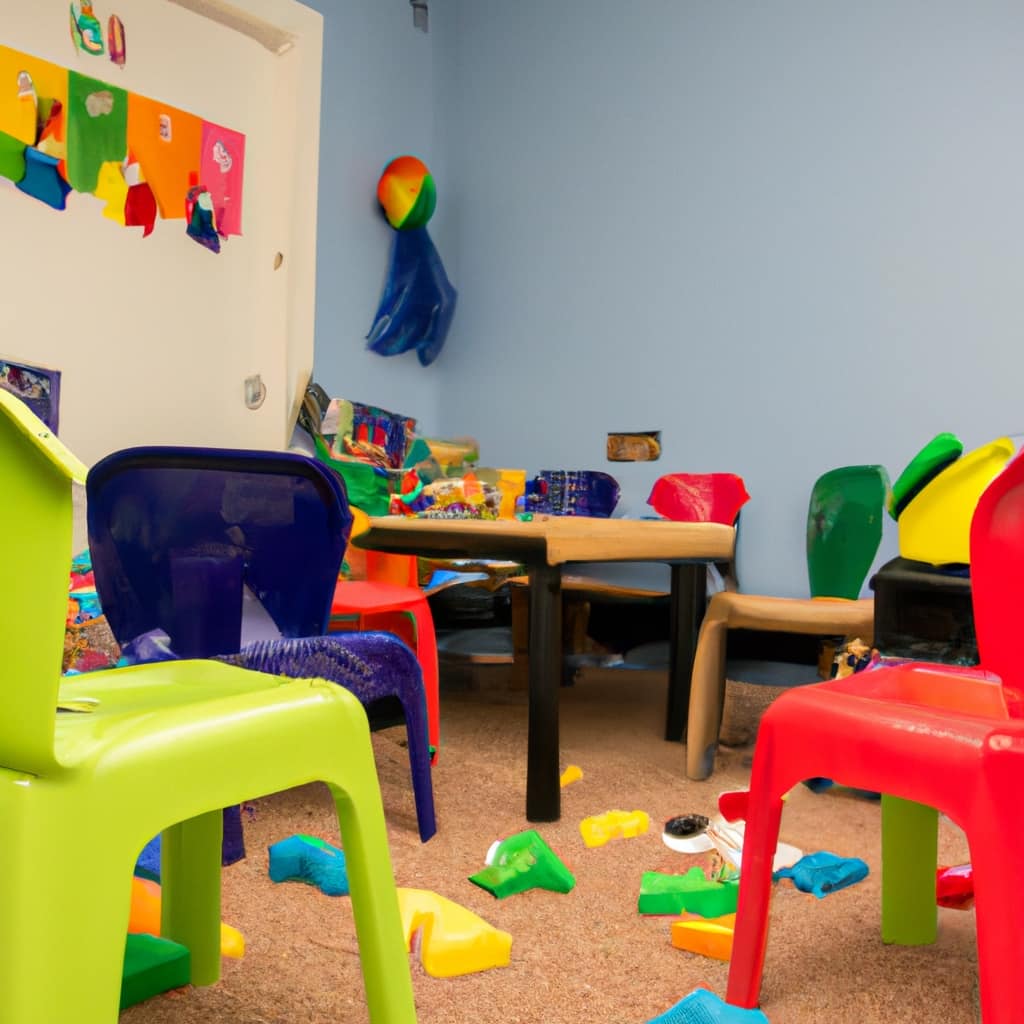
Music’s Influence on Neural Connections and Creativity
As we delve further into the power of music, I am in awe of its ability to shape and influence our neural connections and ignite our creativity. Through music, our brains form intricate pathways that strengthen our cognitive abilities and foster new ways of thinking. It’s like a symphony of electrical impulses dancing and intertwining within us, creating a beautiful harmony of knowledge and innovation.
Imagine a world where neural connections are like vibrant threads, weaving together to form the tapestry of our creative expression. Music acts as the catalyst, stimulating our minds to think outside the box, to explore uncharted territories of imagination. It unlocks the door to a realm where ideas flow freely, where innovation and originality flourish.
Within this realm, we find ourselves immersed in a world of endless possibilities. We can compose melodies that evoke deep emotions, paint pictures with harmonies, and tell stories through rhythm and lyrics. Music becomes the language through which we communicate our innermost thoughts and feelings, transcending the limitations of words.
In this journey of self-discovery, music becomes a trusted companion, guiding us through the labyrinth of our thoughts and emotions. It provides solace in times of distress, joy in moments of celebration, and a bridge that connects us to others who share our love for music. It is through this connection, this universal language of melody, that we find solace, understanding, and a sense of belonging.
Music and Academic Performance: Motivation and Attention
Engaging in music activities enhances motivation and attention, allowing me to excel academically. When I immerse myself in music, whether it’s playing an instrument or singing along to my favorite songs, I notice a significant improvement in my ability to focus and concentrate on my schoolwork.
The rhythmic melodies and harmonies capture my attention and create a sense of flow that makes learning more enjoyable. The connection between music and academic motivation is undeniable. Music ignites a passion within me that drives me to strive for excellence in all areas of my education. It stimulates my brain, boosts my creativity, and fuels my desire to learn.

The power of music to enhance my attention span is truly remarkable, and I am grateful for the profound impact it has on my academic journey.
Music Therapy: Benefits for Children With Special Needs
The therapeutic effects of music are evident in the positive impact it has on the development of children with special needs. Music therapy, specifically designed for these children, offers a multitude of benefits that aid in their overall growth and well-being.
Through music therapy, children with special needs can improve their communication skills, fostering a deeper connection with the world around them. Music therapy not only provides a safe and enjoyable environment for children to express themselves but also enhances their ability to communicate effectively. It allows them to develop important social skills, such as turn-taking and active listening, while encouraging them to express their emotions and thoughts through music.
Music therapy is a powerful tool that empowers children with special needs, enabling them to find their voice and form meaningful connections with others. The power of music transcends barriers, unlocking hidden potential and opening doors to a world full of possibilities.
Cultivating Cultural Awareness Through Music
I have personally experienced how music can broaden my understanding of different cultures and foster a sense of cultural awareness. Through music, I have been able to appreciate the rich diversity of traditions and customs from around the world. It is truly amazing how a simple melody or rhythm can transport us to another place and time, allowing us to connect with people from different backgrounds. Music has the power to break down barriers and unite us in a shared appreciation for the beauty of cultural diversity.
To emphasize the importance of cultural appreciation and multicultural integration through music, let’s take a look at the following table:

| Cultural Appreciation Through Music | ||
|---|---|---|
| Enhances empathy | Promotes understanding | Fosters connection |
| Encourages respect | Celebrates diversity | Builds bridges |
| Provides a safe space for expression | Encourages dialogue | Promotes inclusion |
As we can see, music not only brings us joy and entertainment, but it also serves as a powerful tool for fostering growth, understanding, and harmony in our multicultural society. It allows us to appreciate and learn from each other’s unique cultural heritage, promoting a more inclusive and harmonious world. Let us continue to embrace the transformative power of music and use it as a catalyst for cultural appreciation and multicultural integration.
The Science Behind Music: Brain Development in Children
Growing up, I’ve always been fascinated by how music has the ability to shape and develop a child’s brain. The science behind music reveals that it can have a profound impact on brain development through a process called brain plasticity.
Here are two ways in which music enhances brain development in children:
-
Music therapy benefits: Music therapy has been shown to improve brain plasticity by stimulating neural connections and strengthening cognitive abilities. This form of therapy can be particularly beneficial for children with special needs, as it helps improve their emotional well-being, coping mechanisms, and overall brain development.
-
Memory and problem-solving: Engaging in music activities stimulates critical thinking and enhances cognitive skills. Music has been found to improve memory retention and problem-solving abilities. Through rhythmic patterns and melodies, children are able to exercise their brain and enhance their memory formation and retrieval.
Understanding the science behind music and its impact on brain development emphasizes the importance of incorporating music education and therapy in a child’s life. By nurturing their brains through music, we can help children reach their full potential and foster their overall growth and well-being.

Frequently Asked Questions
Can Music Education Improve Academic Performance in Subjects Other Than Music?
Yes, music education can improve overall academic performance by enhancing critical thinking skills. It stimulates cognitive development, improves memory retention, and fosters creativity, leading to better performance in various subjects.
How Does Music Enhance Cognitive Skills and Memory Formation in Children?
Music enhances my cognitive skills and memory formation. It boosts my concentration, improves problem-solving abilities, and helps me retain information. I love how music stimulates my brain and makes learning more fun and engaging.
What Are the Specific Ways in Which Music Helps in Emotional Development in Children?
Music helps children develop emotional intelligence by fostering empathy and providing a safe outlet for self-expression. Through music, children can understand and connect with the emotions of others, while exploring and expressing their own feelings.
How Does Music Foster Social Skills Such as Teamwork and Cooperation?
How does music foster social skills like teamwork and cooperation? Through collaborative musical activities, children learn to work together, communicate effectively, and appreciate the contributions of others. Music creates a harmonious environment where collaboration and team building thrive.
What Are the Benefits of Music Therapy for Children With Special Needs Beyond Emotional Well-Being?
Music therapy benefits children with special needs beyond emotional well-being. It promotes cognitive development and enhances communication skills. Through music, they can improve their cognitive abilities and develop better ways to express themselves.
Conclusion
In conclusion, the power of music in fostering growth and well-being in children is undeniable. Music education not only enhances academic performance and cognitive skills but also plays a crucial role in emotional development, social skills, fine motor skills, and concentration.
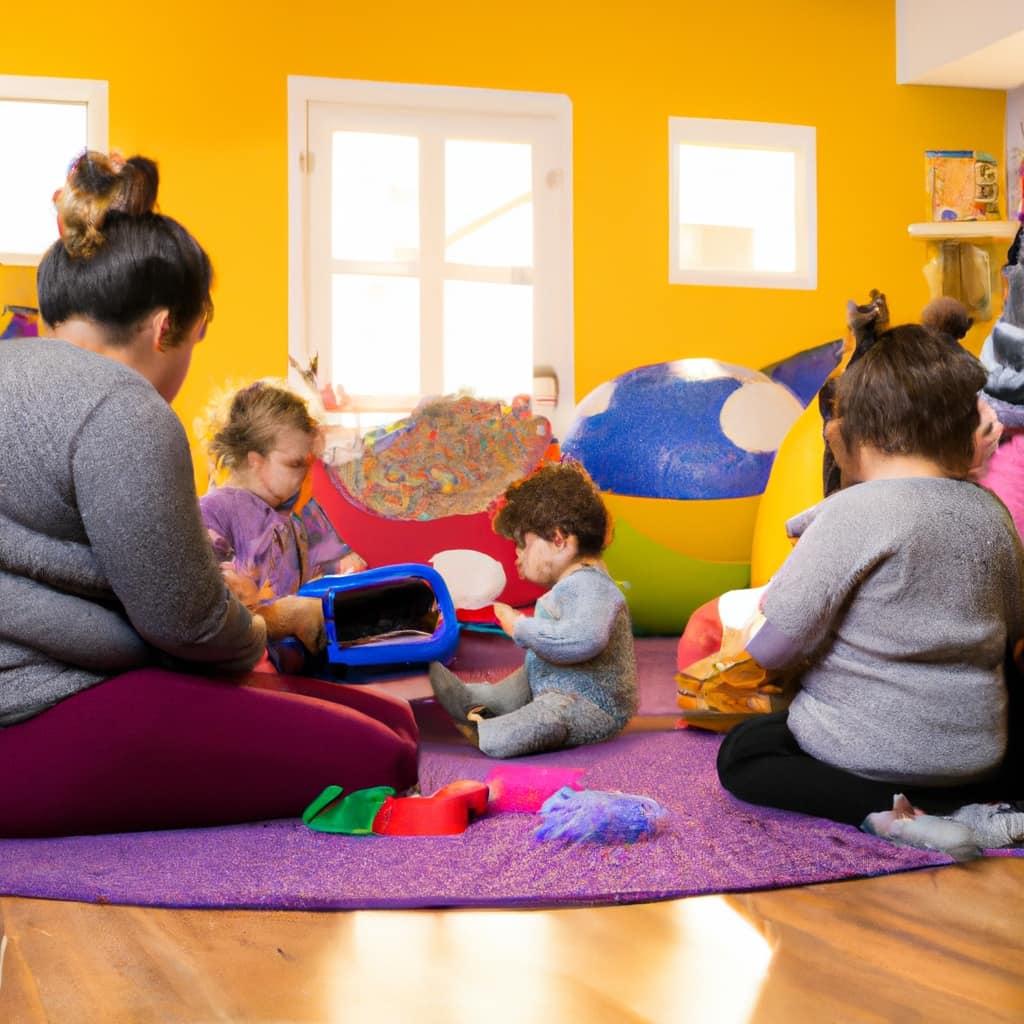
However, some may argue that music is just an extracurricular activity that can be overlooked. But let me tell you, music is not just a hobby, it is a powerful tool that can shape a child’s life and future.
By engaging in music, children can develop a deeper understanding of themselves and others, cultivate empathy, build meaningful connections, and navigate their emotions effectively.
So, let’s not underestimate the transformative power of music and give every child the opportunity to experience its magic.
-
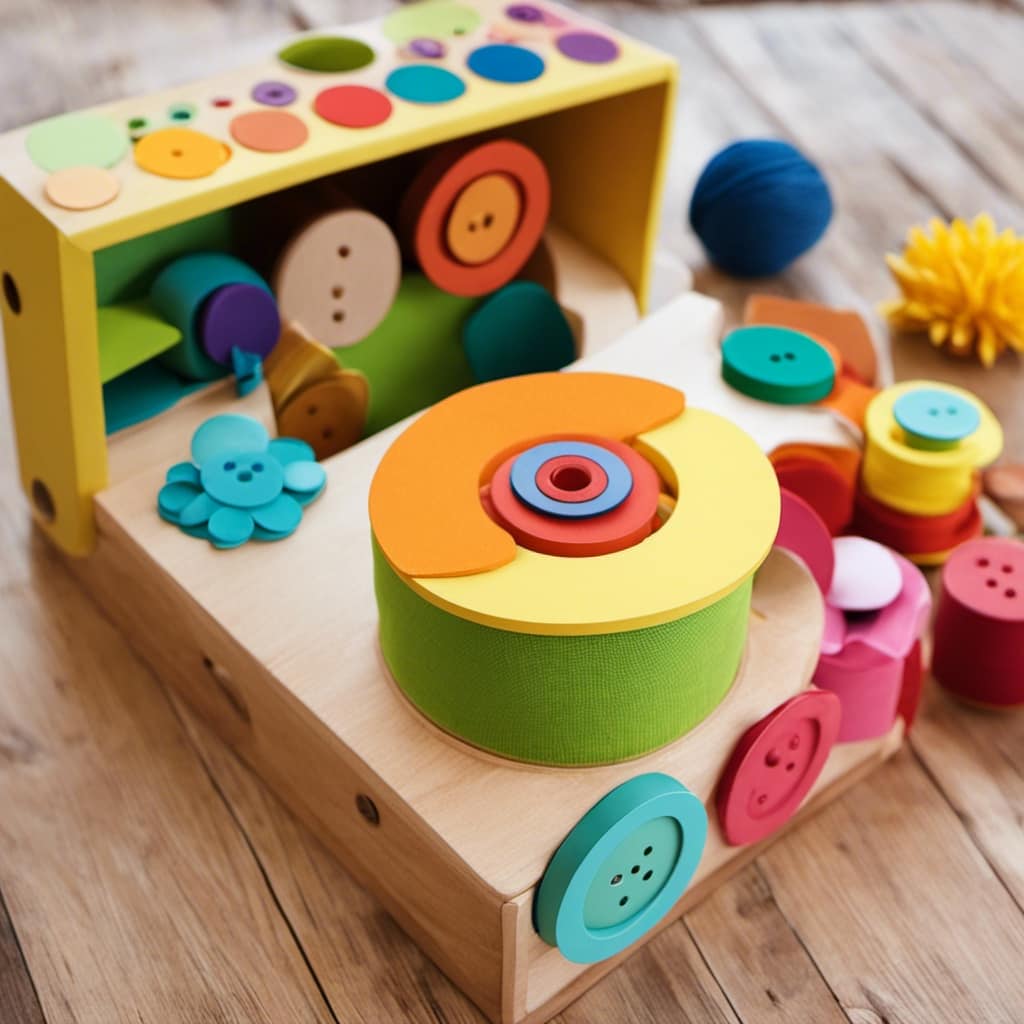
 Child Development2 months ago
Child Development2 months agoThe Power of Cooperative Play in Child Development
-

 Child Development5 months ago
Child Development5 months agoEgocentrism: Understanding a Child’s Perspective
-

 Child Development3 months ago
Child Development3 months agoSymbolic Thinking: A Key Milestone in Cognitive Development
-

 Child Development3 months ago
Child Development3 months agoThe Benefits of Dramatic Play in Child Development
-
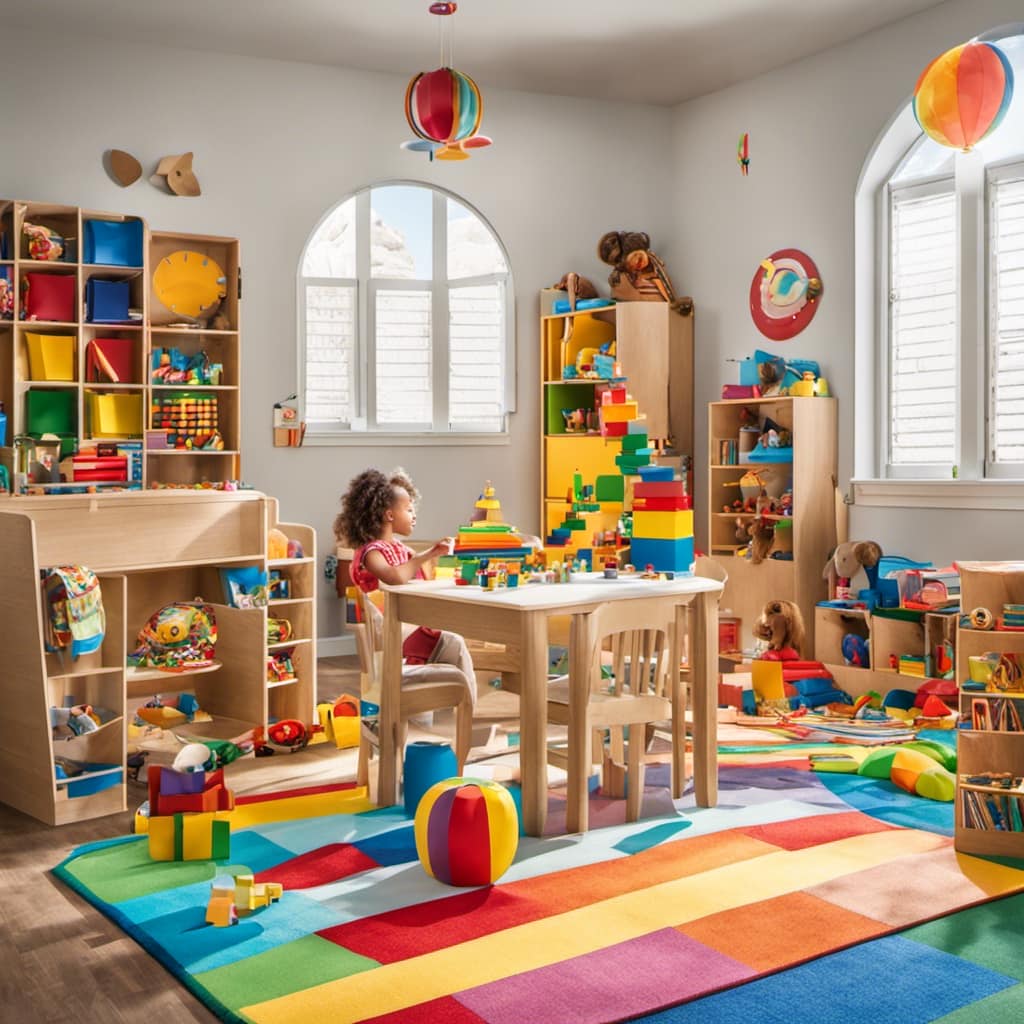
 Child Development2 months ago
Child Development2 months agoThe Importance of Socialization in Child Development
-

 Child Development5 months ago
Child Development5 months agoBuilding Blocks: Enhancing Cognitive Development and Problem-Solving Skills
-

 Child Development2 months ago
Child Development2 months agoThe PIES Model: A Holistic Approach to Child Development
-
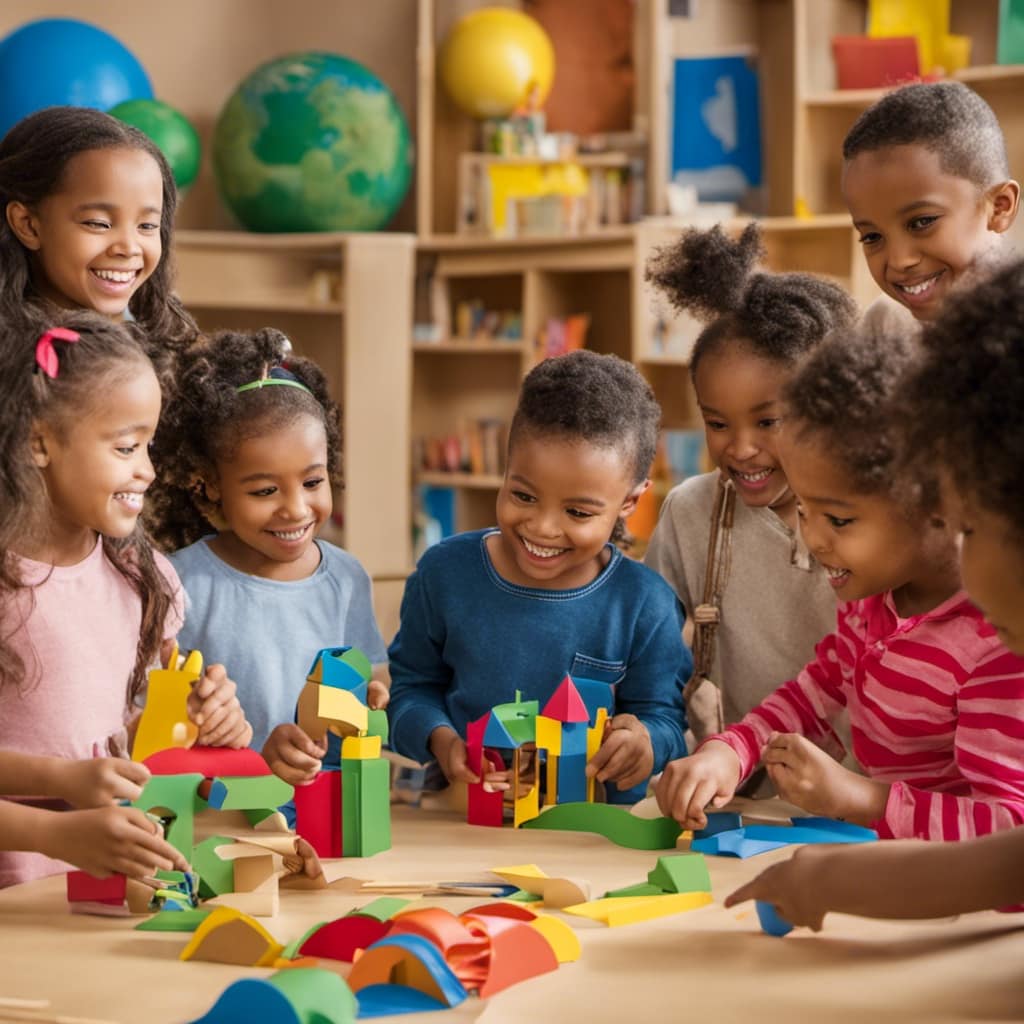
 Child Development3 months ago
Child Development3 months agoSensory Play: Boosting Brain Development and Learning
